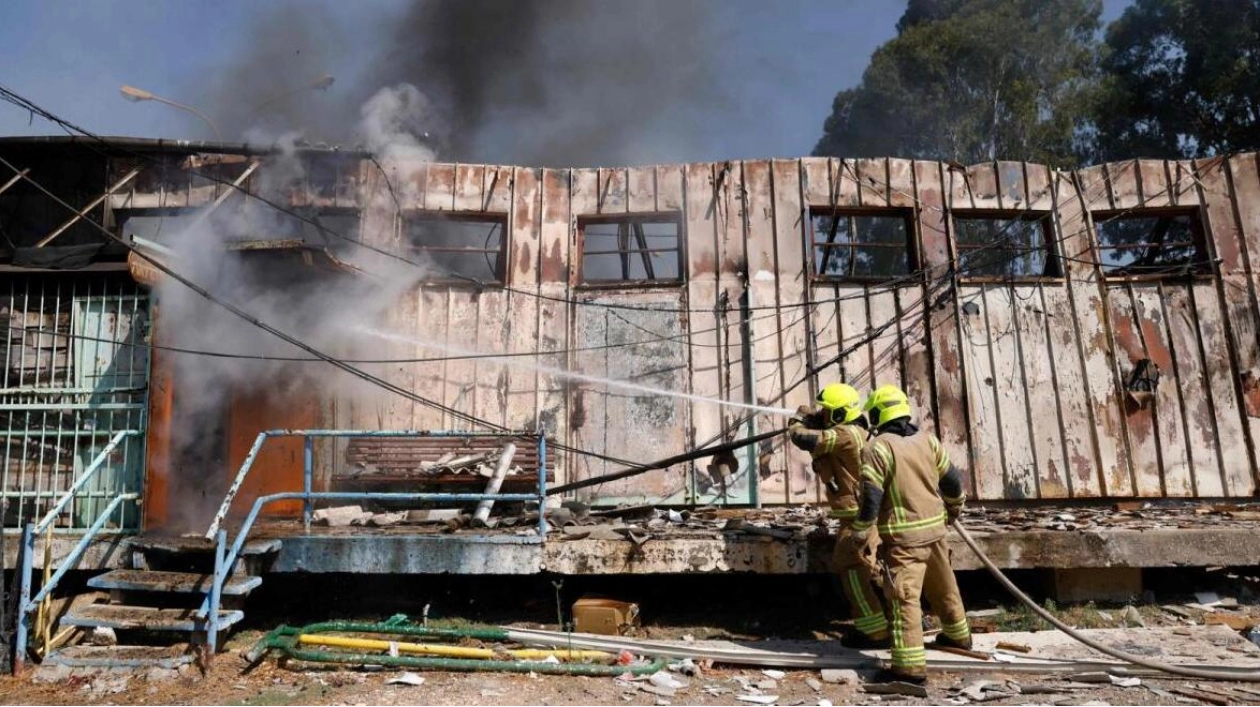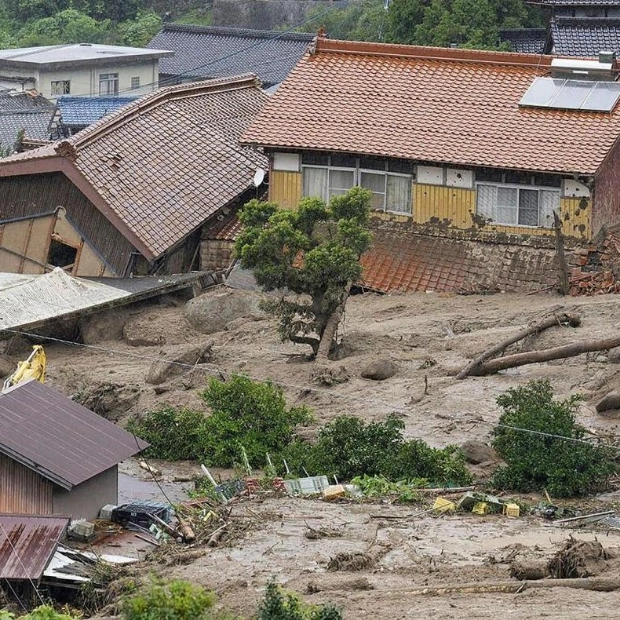Israel launched strikes against Hezbollah targets in southern Lebanon, while the militant group retaliated by attacking military facilities in northern Israel on Tuesday, escalating concerns of a broader conflict. This comes after Lebanon experienced its deadliest day in decades.
Israel's military reported hitting numerous Hezbollah targets overnight, following airstrikes the previous day that Lebanese authorities claim killed nearly 500 people and forced tens of thousands to flee for safety. Hezbollah claimed to have targeted several Israeli military installations, including an explosives factory 60km inside Israel, which it attacked with Fadi rockets around 4am (0100 GMT). Additionally, it struck the Megiddo airfield near Afula three times overnight.
With a year-long war against Hamas in Gaza, Israel is now focusing on its northern border, where Hezbollah has been launching rockets in support of Hamas. Lebanese caretaker prime minister Najib Mikati plans to travel to New York for the UN General Assembly to address the escalating Israeli strikes on Lebanon.
The recent strikes have intensified pressure on Hezbollah, which suffered significant losses last week when thousands of pagers and walkie-talkies used by its members exploded in a major security breach. Although widely attributed to Israel, the operation's responsibility remains unconfirmed.
Israel's intelligence and technological capabilities have given it a significant advantage in both Lebanon and Gaza, enabling the tracking and assassination of top Hezbollah and Hamas leaders. The foreign ministers of the G7 warned that the Middle East could be drawn into a broader conflict with no country benefiting.
An all-out war could destabilize the entire Middle East, exacerbating the ongoing devastating conflict in Gaza. Israel's potential responses include invading southern Lebanon and expanding airstrikes to target Hezbollah-controlled areas in Beirut or Lebanese infrastructure, such as bridges and highways.
Lebanon, already reeling from a catastrophic financial collapse, cannot afford further destruction. Families from southern Lebanon are evacuating, causing gridlock on highways. The Lebanese crisis response coordinator reported 89 temporary shelters set up for over 26,000 people fleeing 'Israeli atrocities'. Israel's military confirmed strikes on Hezbollah in Lebanon's south, east, and north, including rocket launchers and command posts.
Lebanon's health ministry reported at least 492 deaths, including 35 children, and 1,645 wounded, marking the highest daily death toll since the 1975-1990 civil war.






